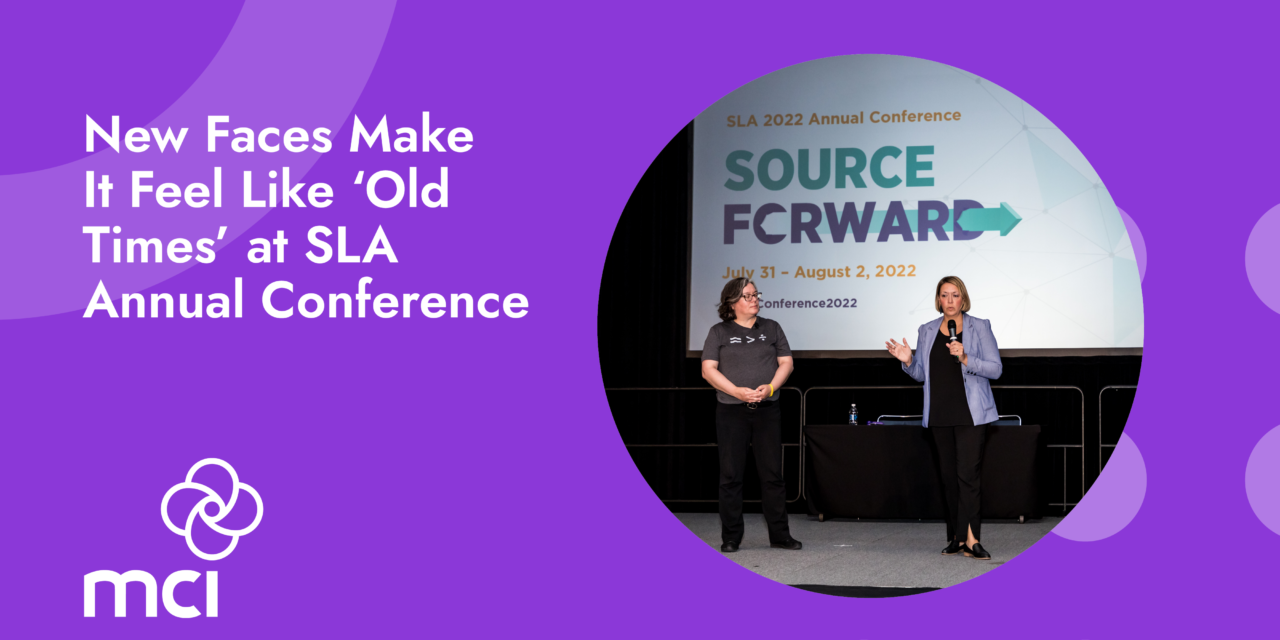After two years of virtual conferences that featured innovations such as “Surprise and Delight Boxes” and an online awards ceremony/magic show, attendees at the Special Libraries Association’s 2022 Annual Conference in Charlotte were looking forward to the simple pleasure of greeting old friends with hugs, handshakes and the occasional elbow bump.
For the SLA staff, the task at hand was even more basic—working together for the first time.
Only two members of the conference team had been present at SLA’s most recent in-person conference, held in 2019 in Cleveland, and several had been with SLA (and MCI) less than a year. But being new to each other and to SLA proved to be an advantage—everyone was trying to make a good first impression, and it worked.
Also on hand to make good first impressions were roughly 170 first-time attendees, several of them students. Two first-timers were so bold as to write and submit conference papers for review by a panel of judges, and one of them (a student at the University of British Columbia) was rewarded for her audacity by being recognized as the author of the best paper presented at SLA 2022.
The conference was SLA’s first in Charlotte and its first hybrid conference (some sessions were live-streamed). Although overall conference attendance was down from 2019, those who attended came away well informed—and well fed. The conference originally had been scheduled for Charlotte in 2018, was rescheduled for 2020, then was postponed until 2022, but the food contracts signed for 2018 (prior to COVID) were still in effect.
“If you’re here in Charlotte, you will come away loaded down with new knowledge, and also a little extra weight,” SLA President Catherine Lavallee-Welch told attendees at the opening general session. “You will eat often and eat well.”
When not eating breakfast or lunch or grazing at receptions, conference attendees feasted on information and ideas shared at roughly 50 learning sessions that covered topics ranging from using non-traditional information sources to cleaning catalog data to managing copyright. Three keynote presentations—on the challenges facing libraries and archives when attempting to engage community partners, how to use information literacy to combat mis-, dis-, and malinformation, and the role that information professionals can play in crafting a gender-inclusive future—rounded out the educational portion of the conference.
Twelve awards were presented in Charlotte, but some awards recipients chose not to travel for health reasons, so the awards will be presented again virtually in an online ceremony in early September. The poster competition was also held online, with the winner to be announced at the awards ceremony.
“Despite the lower numbers in Charlotte, I still found the conference valuable,” one attendee posted to the community forum. “There were good quality sessions, engaging conversations and an informative exhibit hall.”


Recent Comments